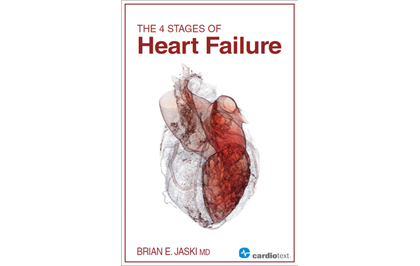Be sure to ask your doctor any questions that are on your mind! Here is a list of commonly asked questions by heart failure patients. Only your doctor can give you the answers that fit your personal case. Click on any of the questions below to expand and view the answer.
Most patients are able to perform sedentary work which involves lifting a 10 pound maximum and occasionally lifting or carrying small items (files, small tools, etc.). Some patients with mild heart failure may be able to perform jobs that require considerable walking or standing and involve lifting 20 pounds maximum. An exercise stress test may be helpful in assessing the capacity for activity.
An exercise test can assess exercise capacity and the likelihood of arrhythmias caused by physical activity. A cardiac rehabilitation specialist or exercise physiologist can prescribe a personalized fitness regimen for patients. Patients with an ejection fraction (EF) of less than 35% may be at an increased risk for arrhythmias or pulmonary congestion.
Patients should avoid foods high in sodium; salt should not be added to food. Patients should eat fresh food (like fruits and vegetables) and avoid processed foods. In addition to these guidelines, alcohol consumption should be limited to no more than one drink per day, if not omitted altogether.
The answer to this depends on the patient’s heart failure severity. The Recommended Dietary Allowance of sodium is 2400 milligrams, but patients with Class III-IV heart failure should limit their intake to 2000 milligrams or less.
Patients who have a history of loss of consciousness due to an arrhythmia in general should not drive. Those who have had symptomatic ventricular arrhythmias should be event free for six months before driving. Patients who have had an Automatic Implantable Cardioverter Defibrillator (AICD) to prevent sudden death may drive.
Side effects depend on the type and dosage of the medications. For more information on the types of drugs and their various side effects, click here.
Patients with new onset or suspected heart failure should have a history and physical exam, lab tests (chemistry panel, CBC, Urinalysis), electrocardiogram (ECG) and chest x-ray. These will determine if the presentation fits the diagnosis of heart failure. An echocardiogram will assess left ventricular function and is important for finding the cause and severity of heart failure. Additional tests may follow as necessary.
Support groups are often formed in hospitals for heart failure patients and can be joined by contacting the group coordinator. If the hospital doesn’t provide this service, chances are a nearby hospital will. It is also advisable to meet with a counselor who specializes in cardiac rehabilitation. Patients can also find heart failure forums and chat rooms on the internet.
Some potentially difficult questions that are usually not asked but that should be:
This is often a patient’s most important question, and also the most difficult for doctors to answer. In part, medical professionals may be reluctant to discuss statistical information with a patient, regarding a topic as serious as mortality. Also, with adherence to medications and lifestyle recommendations, a patient’s prognosis is often better than average.
Even so, some visitors have requested some type of statistical information on mortality of heart failure. It is VERY IMPORTANT for you to recognize that the following information applies to large groups. Individual prognosis should be discussed with your doctor.
Mortality has been shown in clinical trials to correspond to their clinically defined New York Heart Association (NYHA) status, where classes are defined on a scale of one to four (four being the worst functional status). Estimates of mortality rate per year for patient subgroups are as follows:
- Class II = 5-15%
- Class III = 20-50%
- Class IV = 30-70%
New York Heart Association (NYHA) Functional Class
- Class I: No limitation of functional activity
- Class II: Slight limitation of activity. Dyspnea and fatigue with moderate physical activity
- Class III: Marked limitation of activity. Dyspnea with minimal activity
- Class IV: Severe limitation of activity. Symptoms are present even at rest
The information listed is from a review article by Massie BM et al Am Heart J 1997; 133: 703-712.
Again, it is necessary for you and your family to discuss your prognosis with your doctor to plan for appropriate medical options and life activities.
Patients should feel assured that the history and physical exam are painless. Virtually all patients will tolerate a small amount of blood being drawn for laboratory testing. Echocardiograms and electrocardiograms are non-invasive and should likewise not cause any real discomfort. Discuss procedures like cardiac catheterization or major surgery (for example, coronary artery bypass grafts) with the doctors performing the procedure so they can assess this on an individual basis.
Hospital stays differ widely between patients and depend on the reason for hospitalization. Patients with heart failure should be discharged from the hospital when:
- Symptoms of heart failure have been adequately controlled
- Reversible causes of morbidity have been treated or stabilized
- Patients and caregivers have been educated about medications, diet, activity and exercise recommendations, and symptoms of worsening heart failure
- Adequate outpatient support and follow-up care have been arranged


 Español
Español









